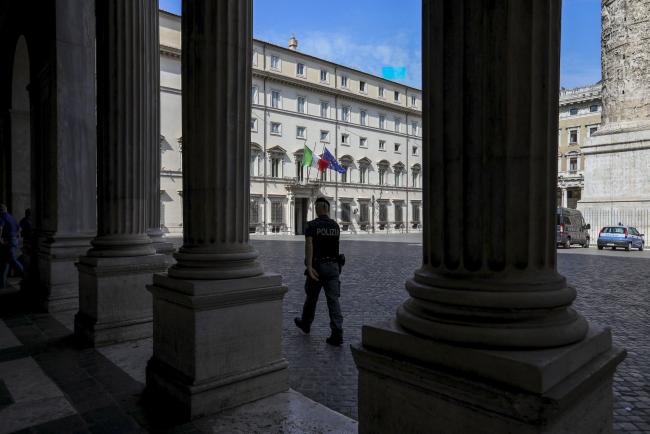(Bloomberg) -- Italy has submitted its budget plans to the European Commission after a late night meeting that highlighted the divisions in Premier Giuseppe Conte’s coalition.
The Italian government said in a statement it had agreed a draft budget which includes the elimination of a planned value-added-tax increase, new funds for public investment and a reduction of the tax burden on workers.
Italy, the euro area’s third largest economy, was supposed to send its plans for review by the European Union’s executive arm by Tuesday. The budget must then be approved by Italy’s parliament before the end of the year.
Despite rising debt and a stagnating economy, Conte’s government has promised a mildly expansionary budget that would see the country’s structural deficit -- which strips off one-off measures -- slightly widen in 2020 before narrowing again in coming years.
The draft plans include scrapping an extra fixed fee to be paid by patients which will result in increased funds being needed for the national health system, changes to the pension system, two funds for state and regional investments and more resources for industrial innovation.
Italy’s fiscal plans are under intense scrutiny given the country’s outsized debt.
The country’s public debt increased to 138% of gross domestic product in the second quarter, according to Bloomberg calculations based on new data released by the Bank of Italy on Tuesday. That’s just under the high of 138.8% reached in the second quarter of 2015.
Still, investors have been scooping up Italian debt, driving down yields amid optimism over the European Central Bank’s new stimulus effort and the expectation that budget negotiations with the European Union will be smooth.
Last year, Italy’s populist government -- also led by Conte but supported by a different coalition -- twice narrowly avoided EU censure over its spending plans, after tense standoffs that push up yields on Italy’s bonds and raised investor concerns over debt sustainability.
